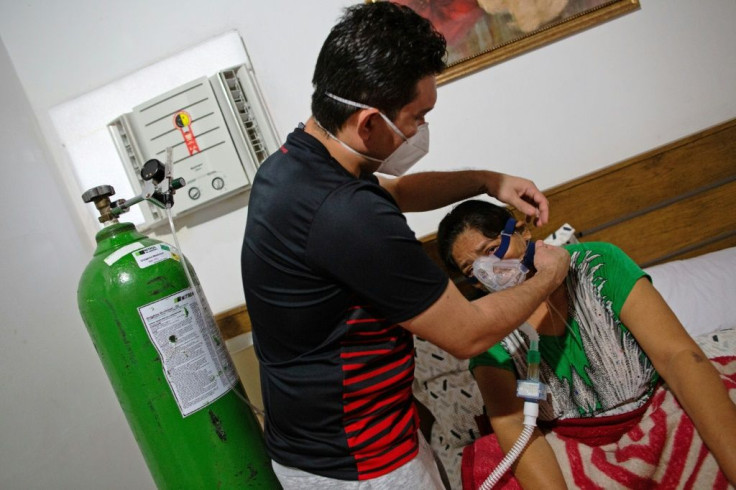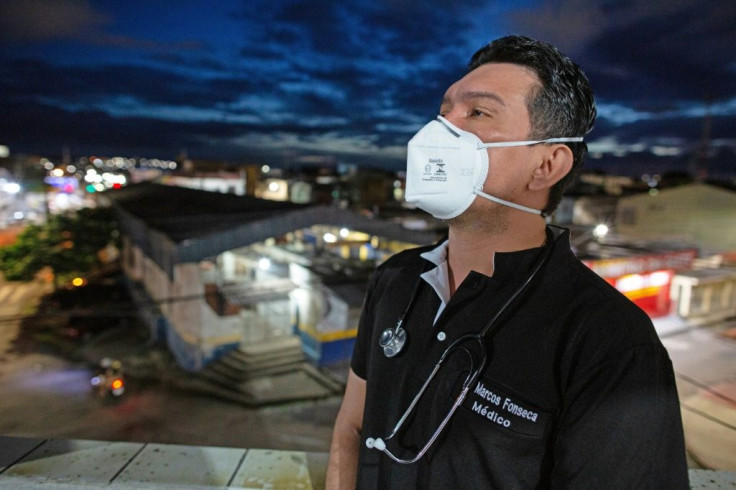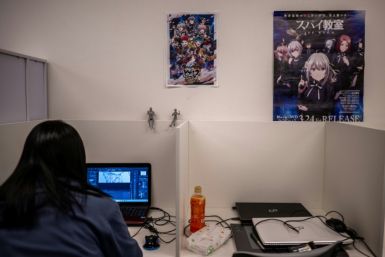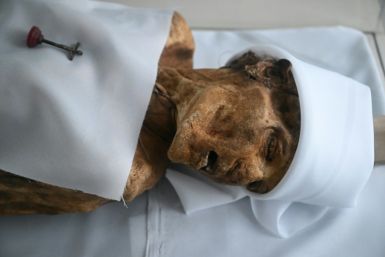Improvised Fight To Save The Sick At Home In Virus-hit Brazil
"I believed she was going to die in my arms," recounts Marcos Fonseca Barbosa, a doctor forced to improvise home treatment for his Covid-sick mother in Brazil, where hospital beds have become scarce.
The 36-year-old doctor had tried to get her admitted to intensive care last week in the northern city of Manaus, but the public hospital was overwhelmed with patients as the number of cases has exploded.
"She had a fever and could hardly breathe. She should have been intubated. I told them I was a doctor, but they made us wait over four hours on plastic chairs," he tells AFP.
"I absolutely do not blame my colleagues -- I know we are living through a war," says the young doctor, who works in several private clinics that are also flooded with patients.

Manaus is a city of some two million people that had already witnessed nightmarish scenes in April and May, when so many died that authorities were forced to dig mass graves and reinforce the hospital with refrigerated trucks.
But the situation is even worse in 2021. In the first 11 days of January no fewer than 1,979 Covid patients have been hospitalized in Manaus, compared to 2,128 in April 2020, which was the worst since the pandemic started.
The 370 deaths reported so far this year in the city have already outpaced the one-month record for fatalities set in May, when 348 lives were lost to the virus.

"Even in my worst nightmares, I could never have imagined something like this," Barbosa says.
When he realized that his 56-year-old mother Ruth might die while waiting in the hospital, the doctor took matters into his own hands.
"It was hopeless. After a while I believed she was going to die in my arms on a plastic chair. I stood up suddenly, I took her to the car and we went home," he remembers.
"Then I sent messages to all my friends and former patients that I had treated at home to ask for their help."
It was through these urgent efforts that he got an oxygen cylinder and non-invasive mechanical ventilation device -- equipment that allowed him to improvise the treatment his mother who have gotten in the hospital.
"I kept her alive with an oxygen mask," he explains, adding that he also gave her a nasal catheter to help her breathe.
"I stayed at her side 24 hours a day for four days. After that I had to go back to the hospital. I left her in the care of my wife, who is a teacher."
He notes that his mother is doing better now, but that hasn't prevented him from calling constantly to check on her.
"What saved her was her will to live and the help of God. It is a true miracle that she is still alive," he says, remaining modest on his efforts to save his mother.






